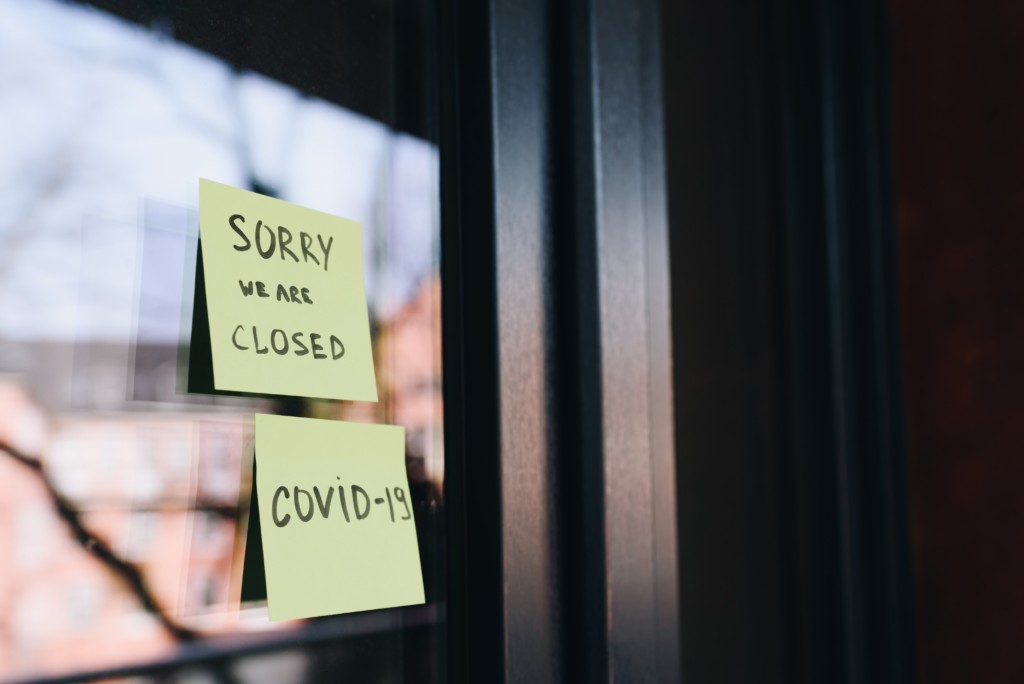You are viewing our site as an Agent, Switch Your View:
Agent | Broker Reset Filters to Default Back to ListThe Collateral Damage of the Pandemic on Real Estate
February 25 2021
 Almost a year into the COVID-19 era, and the collateral damage of the pandemic on real estate markets continues to grow. Overall, real estate sales have fared extremely well, but other aspects of the market have not been immune to economic fallout. In fact, just about anyone in the market who isn't selling has faced headwinds from the pandemic—and for some, relief is nowhere in sight.
Almost a year into the COVID-19 era, and the collateral damage of the pandemic on real estate markets continues to grow. Overall, real estate sales have fared extremely well, but other aspects of the market have not been immune to economic fallout. In fact, just about anyone in the market who isn't selling has faced headwinds from the pandemic—and for some, relief is nowhere in sight.
Eviction Moratoriums Impacting Private Landlords
After pandemic layoffs and furloughs left countless tenants unable to pay their rents, the CARES Act Eviction Moratorium was enacted to maintain secure housing and prevent eviction for non-payment due to COVID-19-related struggles. It's worth noting that the majority of rental units in the country are owned by independent landlords, not by corporate entities. For many of these private landlords, their savings have not been adequate to cover almost a year of non-payment from their tenants. This has left millions of American landlords struggling right along with their tenants to pay for their homes, repairs, insurance, and even utilities without that steady source of cash-flow from their rental properties.
Many landlords have worked with tenants to reach creative agreements to meet everyone's needs. While there are many foreclosure moratorium options in place, most don't cover the landlord's requirement to pay insurance, utilities, and maintenance. As the federal government works to create a solution that not only benefits tenants and landlords, small time investors will need to continue navigating repayment options that are both fair and reasonable.
(READ MORE: 5 Predictions for the 2021 Housing Market)
Commercial Real Estate Hit Hardest By COVID-19
As shelter-in-place orders and quarantines became the "new norm," commercial real estate spaces—often home to retail and office space—suffered significant hits in property values and revenues. Consumer spending was down over 52% in clothing stores, over 23% in sport and hobby stores, and 24.5% in department stores. Countless small restaurants and stores have permanently closed their doors, leaving behind scores of empty commercial spaces. Brick-and-mortar retailers were most dramatically impacted, with over 12,000 store closings.

Now that work-from-home has become more integrated into business operations, the future of commercial office space remains a giant question mark. In the second quarter of 2020 alone, office vacancy rates skyrocketed to 15%, with an end-of-year drop of over 47% in commercial office transactions. If work-from-home remains as heavily utilized through 2021, this could rub salt in the wound for existing office spaces.
Joblessness Impeded First-time Buyers' Ability To Purchase
For many, 2020 was going to be their year to buy a home. Wisely, they planned to take advantage of record-low interest rates and homebuyer assistance programs.
Then, COVID-19 happened.
With an influx of layoffs and furloughs, many of these potential buyers were left without the means to continue saving. Additionally, federal student loans were placed on automatic forbearance, which negatively impacted many buyers' ability to get mortgage approval. Why? Typically, lenders use the monthly student loan obligation to calculate mortgage eligibility. However, if that monthly number is zero (as was the case with federal student loans in automatic forbearance), lenders will usually assume a monthly payment of 1% of the entire student loan balance. This can tack on hundreds of dollars to the assumed payment in the eyes of the lender, and thus disqualify borrowers from approval.
Many lenders have also started requiring buyers to sign affidavits stating they have not missed student loan payments during the pandemic. In essence, forbearance has been a great tool to help meet current financial obligations, but has delayed the dream of home ownership.
What's Next?
It remains to be seen how long the collateral damage of the pandemic on real estate will continue, or if any additional issues may arise. With future stimulus packages and relief programs, the obvious hope is to have a return to normalcy in all of real estate, for renters, buyers, owners and investors. For now, Homes.com continues to monitor market conditions and trends, and sharing what you need to know. Stay tuned!
Jennifer McMurray is an accidental house flipper turned Realtor and real estate investor. She is the voice behind the blog, Bachelorette Pad Flip. Over five years, Jennifer paid off $70,000 in student loan debt through real estate investing. She's passionate about the power of real estate. She's also passionate about southern cooking, good architecture, and thrift store treasure hunting. She calls Northwest Arkansas home with her cat Smokey, but she has a deep love affair with South Florida.
To view the original article, visit the Homes.com blog.









